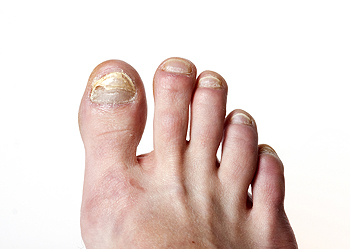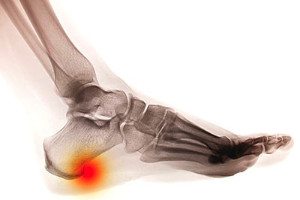
Broomall (484) 521-0233
West Chester (610) 436-5883

Broomall (484) 521-0233
West Chester (610) 436-5883
 It was recently announced that Greg Bird of the New York Yankees would have to undergo surgery to remove a bone in his foot. It is believed that he suffered the injury when he fouled a ball off his ankle in spring training. Although at first he tried to play through the pain, his road to recovery has been unsuccessful. Bird’s absence has ravaged the Yankees, who have been getting some of the worst production from first base in the league. Bird was only able to play 19 games this year with a batting average of only .100. It is unknown whether or not Bird will be ready to return to the team by the end of the season, but it is likely he will be able to play in 2018.
It was recently announced that Greg Bird of the New York Yankees would have to undergo surgery to remove a bone in his foot. It is believed that he suffered the injury when he fouled a ball off his ankle in spring training. Although at first he tried to play through the pain, his road to recovery has been unsuccessful. Bird’s absence has ravaged the Yankees, who have been getting some of the worst production from first base in the league. Bird was only able to play 19 games this year with a batting average of only .100. It is unknown whether or not Bird will be ready to return to the team by the end of the season, but it is likely he will be able to play in 2018.
Foot surgery is sometimes necessary to treat a foot ailment. To learn more, contact the podiatrists of Dr. Siegerman & Associates. Our doctors will assist you with all of your foot and ankle needs.
When Is Surgery Necessary?
Foot and ankle surgery is generally reserved for cases in which less invasive, conservative procedures have failed to alleviate the problem. Some of the cases in which surgery may be necessary include:
What Types of Surgery Are There?
The type of surgery you receive will depend on the nature of the problem you have. Some of the possible surgeries include:
Benefits of Surgery
Although surgery is usually a last resort, it can provide more complete pain relief compared to non-surgical methods and may allow you to finally resume full activity.
Surgical techniques have also become increasingly sophisticated. Techniques like endoscopic surgery allow for smaller incisions and faster recovery times.
If you have any questions please feel free to contact one of our offices located in Drexel Hill and West Chester, PA . We offer the newest diagnostic and treatment technologies for all your foot and ankle needs.
In most cases, foot surgery is often chosen as the last available option for conditions that have otherwise been unsuccessfully treated. Surgery may be necessary for several reasons, including the removal of foot deformities (e.g. bone spurs or bunions), arthritis problems, reconstruction due to injury, and congenital malformations (e.g. club foot or flat feet). Regardless of one’s age, foot surgery may be the only successful option for treatment for certain conditions.
The type of surgery one undergoes depends on the type of foot condition the patient has. For the removal of a bunion growth, a bunionectomy is necessary. If the bones in the feet need to be realigned or fused together, a surgical fusion of the foot is needed. For pain or nerve issues, a patient may require surgery in which the tissues surrounding the painful nerve are removed. Initially, less invasive treatments are generally attempted; surgery is often the last measure taken if other treatments are unsuccessful.
While in many cases surgery is often deemed as the final resort, choosing surgery comes with certain benefits. The associated pain experienced in relation to the particular condition is often relieved with surgery, allowing patients to quickly resume daily activities. The greatest benefit, however, is that surgery generally eliminates the problem immediately.
Podiatry history has shown that foot treatments continue to evolve over time. In the field of foot surgery, endoscopic surgery is just one of the many advanced forms of surgery. As technology vastly improves so too will the various techniques in foot surgery, which already require smaller and smaller incisions with the use of better and more efficient tools. Thanks to such innovations, surgery is no longer as invasive as it was in the past, allowing for faster and easier recoveries.
Toenail fungus is a frustrating problem that affects many people. It can be persistent and hard to get rid of. As many different types of fungi are present throughout the environment, it is very easy to contract toenail fungus.
The feet are especially susceptible to toenail fungus because shoes and socks create the ideal dark and moist environment that fungal infections thrive in. While fungal infections of the nail plate are quite common, if left untreated they can spread beyond the toenail and into the skin and other parts of the body.
Signs of toenail fungus include a thickened nail that has become yellow or brown in color, a foul smell, and debris beneath the nail. The toe may become painful due to the pressure of a thicker nail or the buildup of debris.
Treatment for toenail fungus is most effective during the early stages of an infection. If there is an accumulation of debris beneath the nail plate, an ingrown nail or a more serious infection can occur. While each treatment varies between patients, your podiatrist may prescribe you oral medications, topical liquids and creams, or laser therapy. To determine the best treatment process for you, be sure to visit your podiatrist at the first signs of toenail fungus.
 Toenail fungus is a condition that affects approximately 14% of the population. Fungi can be found almost anywhere in our environment, and it is important that you are aware of the different ways you can avoid them. One of the best ways you can prevent toenail fungus is by wearing socks. Some of the best sock fabrics in terms of protecting your feet are nylon, wool, and polypropylene. Another tip is to avoid walking around in wet areas as much as possible, since fungi tend to thrive in moist environments. Anti-fungal powder has also been proven to be beneficial in fighting fungus. The powder works by weakening the cell membrane of the fungus and preventing it from producing ergosterol, an essential part of its structure.
Toenail fungus is a condition that affects approximately 14% of the population. Fungi can be found almost anywhere in our environment, and it is important that you are aware of the different ways you can avoid them. One of the best ways you can prevent toenail fungus is by wearing socks. Some of the best sock fabrics in terms of protecting your feet are nylon, wool, and polypropylene. Another tip is to avoid walking around in wet areas as much as possible, since fungi tend to thrive in moist environments. Anti-fungal powder has also been proven to be beneficial in fighting fungus. The powder works by weakening the cell membrane of the fungus and preventing it from producing ergosterol, an essential part of its structure.
For more information about treatment, contact the podiatrists of Dr. Siegerman & Associates. Our doctors can provide the care you need to keep you pain-free and on your feet.
Toenail Fungus Treatment
Toenail fungus is a condition that affects many people and can be especially hard to get rid of. Fortunately, there are several methods to go about treating and avoiding it.
Antifungals & Deterrence
Oral antifungal medicine has been shown to be effective in many cases. It is important to consult with a podiatrist to determine the proper regiment for you, or potentially explore other options.
Applying foot powder on the feet and shoes helps keep the feet free of moisture and sweat.
Sandals or open toed shoes – Wearing these will allow air movement and help keep feet dry. They also expose your feet to light, which fungus cannot tolerate. Socks with moisture wicking material also help as well.
If you have any questions please feel free to contact one of our offices located in Drexel Hill and West Chester, PA . We offer the newest diagnostic tools and technology to treat your foot and ankle needs.
Heel spurs are the result of calcium deposits that cause bony protrusions on the underside of the heel. Heel spurs are usually painless, but they have the potential to cause heel pain. Heel spurs tend to be associated with plantar fasciitis, which is a condition that causes inflammation of the band of connective tissue that runs along the bottom of the foot. They most often occur to athletes whose sports involve a lot of running and jumping.
Some risk factors for developing heel spurs include running and jogging on hard surfaces, being obese, wearing poorly fitting shoes, or having walking gait abnormalities.
It is possible to have a heel spur without showing signs of any symptoms. However, if inflammation develops at the point of the spur’s formation, you may have pain while walking or running. In terms of diagnosis, sometimes all a doctor needs to know is that the patient is experiencing a sharp pain localized to the heel to diagnose a heel spur. Other times, an x-ray may be needed to confirm the presence of a heel spur.
Heel spurs can be prevented by wearing well-fitting shoes that have shock-absorbent soles. You should also be sure that you are choosing the right shoe for the activity you want to partake in; for example, do not wear walking shoes when you want to go on a run. Additionally, maintaining a healthy weight can be beneficial toward preventing heel spurs, as it will prevent an excess amount of pressure being placed on the ligaments.
There are a variety of treatment options for people with heel spurs. Some of these include stretching exercises, physical therapy, shoe inserts, or taping and strapping to rest stressed muscles and tendons. If you have heel pain that lasts longer than a month, don’t hesitate to seek help from a podiatrist. Your doctor can help you determine which treatment option is best for you.
 Cardinals outfielder Dexter Fowler was recently placed on the disabled list with a heel spur. Fowler suffered the injury in a game against the Pirates. Prior to experiencing the heel spur, Fowler was dealing with a quadriceps injury that kept him out for a few games. This season, the outfielder is hitting .245/.336/.481 with 13 homeruns and 35 RBI in 277 plate appearances. Unfortunately, Fowler’s injury has come at the wrong time for a struggling Cardinals team. In order to fill his spot on the roster, the team has called up outfielder Randal Grichuk from Triple-A Memphis.
Cardinals outfielder Dexter Fowler was recently placed on the disabled list with a heel spur. Fowler suffered the injury in a game against the Pirates. Prior to experiencing the heel spur, Fowler was dealing with a quadriceps injury that kept him out for a few games. This season, the outfielder is hitting .245/.336/.481 with 13 homeruns and 35 RBI in 277 plate appearances. Unfortunately, Fowler’s injury has come at the wrong time for a struggling Cardinals team. In order to fill his spot on the roster, the team has called up outfielder Randal Grichuk from Triple-A Memphis.
Heel spurs can be incredibly painful and sometimes may make you unable to participate in physical activities. To get medical care for your heel spurs, contact the podiatrists from Dr. Siegerman & Associates. Our doctors will do everything possible to treat your condition.
Heels Spurs
Heel spurs are formed by calcium deposits on the back of the foot where the heel is. This can also be caused by small fragments of bone breaking off one section of the foot, attaching onto the back of the foot. Heel spurs can also be bone growth on the back of the foot and may grow in the direction of the arch of the foot.
Older individuals usually suffer from heel spurs and pain sometimes intensifies with age. One of the main condition's spurs are related to is plantar fasciitis.
Pain
The pain associated with spurs is often because of weight placed on the feet. When someone is walking, their entire weight is concentrated on the feet. Bone spurs then have the tendency to affect other bones and tissues around the foot. As the pain continues, the feet will become tender and sensitive over time.
Treatments
There are many ways to treat heel spurs. If one is suffering from heel spurs in conjunction with pain, there are several methods for healing. Medication, surgery, and herbal care are some options.
If you have any questions feel free to contact one of our offices located in Drexel Hill and West Chester, PA . We offer the latest in diagnostic and treatment technology to meet your needs.
 The health of your feet is very important, and it is crucial that you are aware of what may be harming them so that you can avoid any serious conditions. A good tip to follow while shopping for shoes is to look for shoes made of leather material. Unlike other artificial materials, leather is a natural fiber that allows the feet to breathe. In addition, you should look for a shoe that offers a good amount of arch support for your feet in order to prevent long-term pain and damage. Another tip is to never wear the same shoes two days in a row. When you repeatedly wear a pair of shoes, you are putting a significant amount of pressure on the same area of your foot, which can cause misalignment.
The health of your feet is very important, and it is crucial that you are aware of what may be harming them so that you can avoid any serious conditions. A good tip to follow while shopping for shoes is to look for shoes made of leather material. Unlike other artificial materials, leather is a natural fiber that allows the feet to breathe. In addition, you should look for a shoe that offers a good amount of arch support for your feet in order to prevent long-term pain and damage. Another tip is to never wear the same shoes two days in a row. When you repeatedly wear a pair of shoes, you are putting a significant amount of pressure on the same area of your foot, which can cause misalignment.
Everyday foot care is very important to prevent infection and other foot ailments. If you need your feet checked, contact the podiatrists from Dr. Siegerman & Associates. Our doctors can provide the care you need to keep you pain-free and on your feet.
Everyday Foot Care
Often, people take care of their bodies, face and hair more so than they do for their feet. But the feet are a very important aspect of our bodies, and one that we should pay more attention to. Without our feet, we would not be able to perform most daily tasks.
It is best to check your feet regularly to make sure there are no new bruises or cuts that you may not have noticed before. For dry feet, moisturizer can easily be a remedy and can be applied as often as necessary to the affected areas. Wearing shoes that fit well can also help you maintain good foot health, as well as making it easier to walk and do daily activities without the stress or pain of ill-fitting shoes, high heels, or even flip flops. Wearing clean socks with closed shoes is important to ensure that sweat and bacteria do not accumulate within the shoe. Clean socks help to prevent Athlete’s foot, fungi problems, bad odors, and can absorb sweat.
If you have any questions please feel free to contact one of our offices located in Drexel Hill and West Chester, PA . We offer the newest diagnostic and treatment technologies for all your foot and ankle needs.
Our feet are important in our everyday lives. The problem is that we tend to neglect them. When this becomes a habit, it can cause significant trouble. Ignoring foot problems can mean pain, limited mobility, and expensive doctor's visits. On the other hand, if feet are cared for and looked after regularly, they will perform without pain or complication.
Routine hygiene is the most basic way to care for the feet. Wash and dry them thoroughly daily. Remember to get between the toes and keep the toenails trimmed and short. If the feet feel dry or there are signs of dryness or cracking, use a moisturizer designed for the feet.
When using moisturizer on the feet, try to avoid applying between the toes. If cream or lotion sits too long, they can cause fungal and bacterial growth. When moisturizer is used between the toes, it can also cause the skin to soften too much.
Shoes are also an important aspect of foot care. When one is picking out shoes, make sure they are the correct size. Shoes need to be snug, but not too tight. On the other hand, if shoes are too loose they can cause foot problems as well. It is highly recommended that shopping for new shoes be done later in the day. The reason for this is that the feet will have settled and swelled to their full size by then. To keep your feet at their most healthy, avoid wearing high heels or flip flops too often. Instead, choose shoes that are good for your feet. Good shoes pad the soles of your feet and support the arches and ankles.
Socks should also be worn daily with closed-toe shoes. They may feel hot during the summer months, but they absorb sweat and moisture off the feet. Without socks, the build-up of sweat in a closed-toe shoe can cause fungal problems and athlete's foot.
The best thing to remember in every day foot care is that shoes do make a difference. If you spend a lot of time on your feet, make sure that your shoes show no signs of wear. Shoes should offer ample support for the arches and the overall foot. Additionally, try to make foot cleaning and maintenance a daily habit. If you keep these things in mind, your feet will stay healthy and safe.
Request a free copy of
Laser Away Foot Pain!
today.
